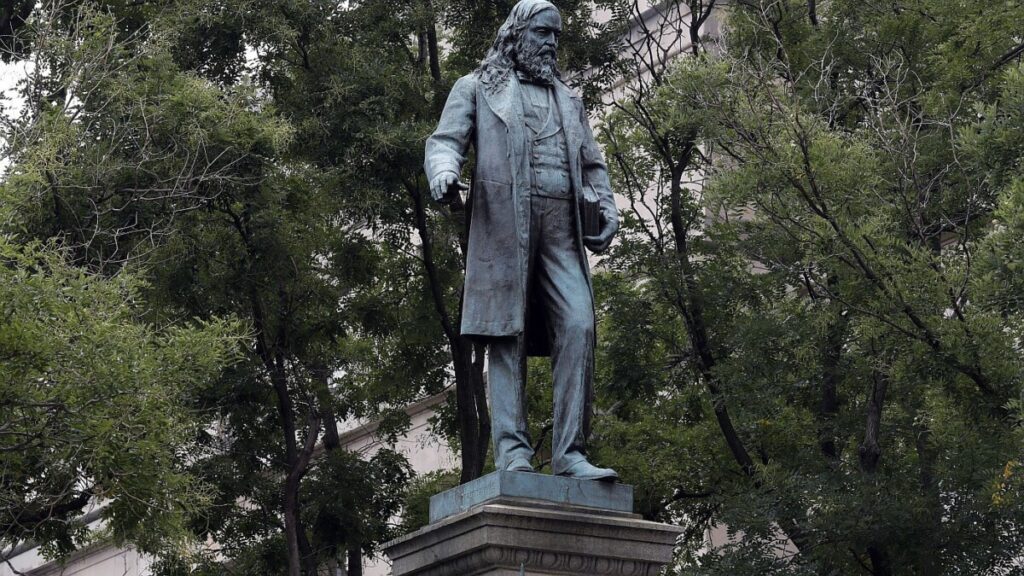A Confederate statue toppled in Washington, D.C., in 2020 has been reinstalled
In a significant and controversial move, the statue of Confederate General Albert Pike has been reinstalled in Judiciary Square, Washington, D.C., after being removed during the widespread protests associated with the Black Lives Matter movement in 2020. The original statue, which had stood since 1901, was pulled down by protestors who viewed it as a symbol of racism and oppression. Pike, a prominent figure in the Confederacy, has long been criticized for his role in the Civil War and his connections to the Ku Klux Klan, leading to calls for the removal of his likeness from public spaces. The decision to restore the statue has ignited a renewed debate about the legacy of Confederate figures in American history and the ongoing struggle for racial justice.
The reinstallation of the Pike statue comes amid a broader national conversation regarding how communities reckon with their historical figures. While some view the statue as a representation of Southern heritage, many others see it as a painful reminder of America’s history of slavery and systemic racism. The District of Columbia’s decision has drawn both support and condemnation, highlighting the deep divisions in public opinion on this issue. Local officials and community leaders have expressed concerns that the statue’s return could exacerbate tensions in a city that has been a focal point for discussions about race and equity. This situation exemplifies the challenges faced by cities across the United States as they navigate the complexities of historical memory and contemporary values.
As cities grapple with their past, the case of Albert Pike serves as a microcosm of a larger national debate. Many municipalities have opted to remove or relocate statues and monuments that honor figures associated with the Confederacy, while others have engaged in discussions about contextualizing these figures through educational programs or historical markers. The Pike statue’s return raises questions about what it means to honor history and the implications of such decisions on community relations. As the dialogue continues, it remains clear that the legacy of figures like Albert Pike will continue to provoke thought and discussion in the quest for a more equitable society.
Related articles:
– Link 1
– Link 2
A statue of Confederate general Albert Pike, which had been pulled down during the Black Lives Matter movement, has been put back up in Washington, D.C.’s Judiciary Square.
(Image credit: Alex Brandon)
Eric
Eric is a seasoned journalist covering US Politics news.



